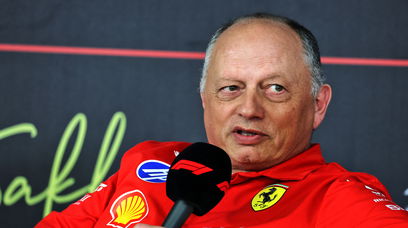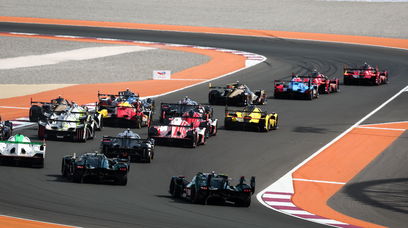The controversial first-lap clash between Lewis Hamilton and Max Verstappen was a racing incident, according to former F1 driver Jolyon Palmer. Hamilton was handed a 10-second penalty for his role in the moment, which led to Verstappen crashing heavily into the wall before the first lap had even been completed. However, Palmer believes that neither driver was to blame for what happened. "With the incident itself I can’t help but feel it’s a racing incident," Palmer said in his column for Formula1.com. "Hamilton was fully up the inside of Verstappen into the corner, therefore had earned the right to some space on the inside. "Verstappen turned in knowing he was there, inevitably taking a risk that he would be hit by a Mercedes that couldn’t vanish. "Hamilton did miss the apex, but not by a huge amount – he never took the apex kerb there all weekend as it unsettled his Mercedes, so he wouldn’t have been aiming for it on this ambitious pass either, even though later on he did on his understandably more cautious pass on Charles Leclerc. "No doubt it was a bold attempt from Hamilton on the inside, one that was incredibly risky, but it was also bold and risky for Verstappen to know the Mercedes was there on his inside and still turn in absolutely flat-out at one of the fastest corners on the calendar. "If you absolutely had to apportion blame, then maybe as Lewis missed the apex slightly you would say it was more him, but in the grand scheme of things this falls into the racing incident banner for me - a collision between two drivers who both refused to yield." Palmer acknowledges though that the huge consequences of the incident for Verstappen - both in terms of the massive 51G impact he experienced, and the fact that he has now had his lead in the Drivers' Standings dramatically reduced - make the debate about the penalty understandable. "What muddied the picture is the outcome," Palmer explained. "I can understand the polarising opinions after the incident. The impact Max suffered was massive, with the effect on the championship almost equally large at this stage. "The Red Bull management were understandably pushing for the harshest penalty possible for their main adversary in a race where they had basically nothing else going on, but the reality is the incident didn’t warrant it. "I’ve seen people try and compare this incident to controversial ones from Ayrton Senna in Suzuka, or Michael Schumacher in Jerez, but when the dust settles they must see that this is very different. This was undoubtedly a brave attempt from Hamilton but it wasn’t cynical. "The stewards deemed Hamilton more at fault, a consequence of his missed apex, and issued a 10 second penalty. While people can debate whether it was a racing incident or more Hamilton at fault, the reality is it was the harshest penalty Hamilton deserved for any offence he committed. "It’s easy to forget that he was very lucky to even remain in the race himself after contact at such a high-speed corner. Had he ended up in the wall as well, I think a racing incident would have been a more obvious decision, but clearly luck played its part for him to keep going, with the help of the subsequent red flag, and then win. "The ramifications are huge, but penalties aren’t dealt based on who the driver is that you are racing against. With Verstappen out of the Grand Prix, Hamilton can’t be given a black flag on the basis that he missed his apex by a touch."
Most read






